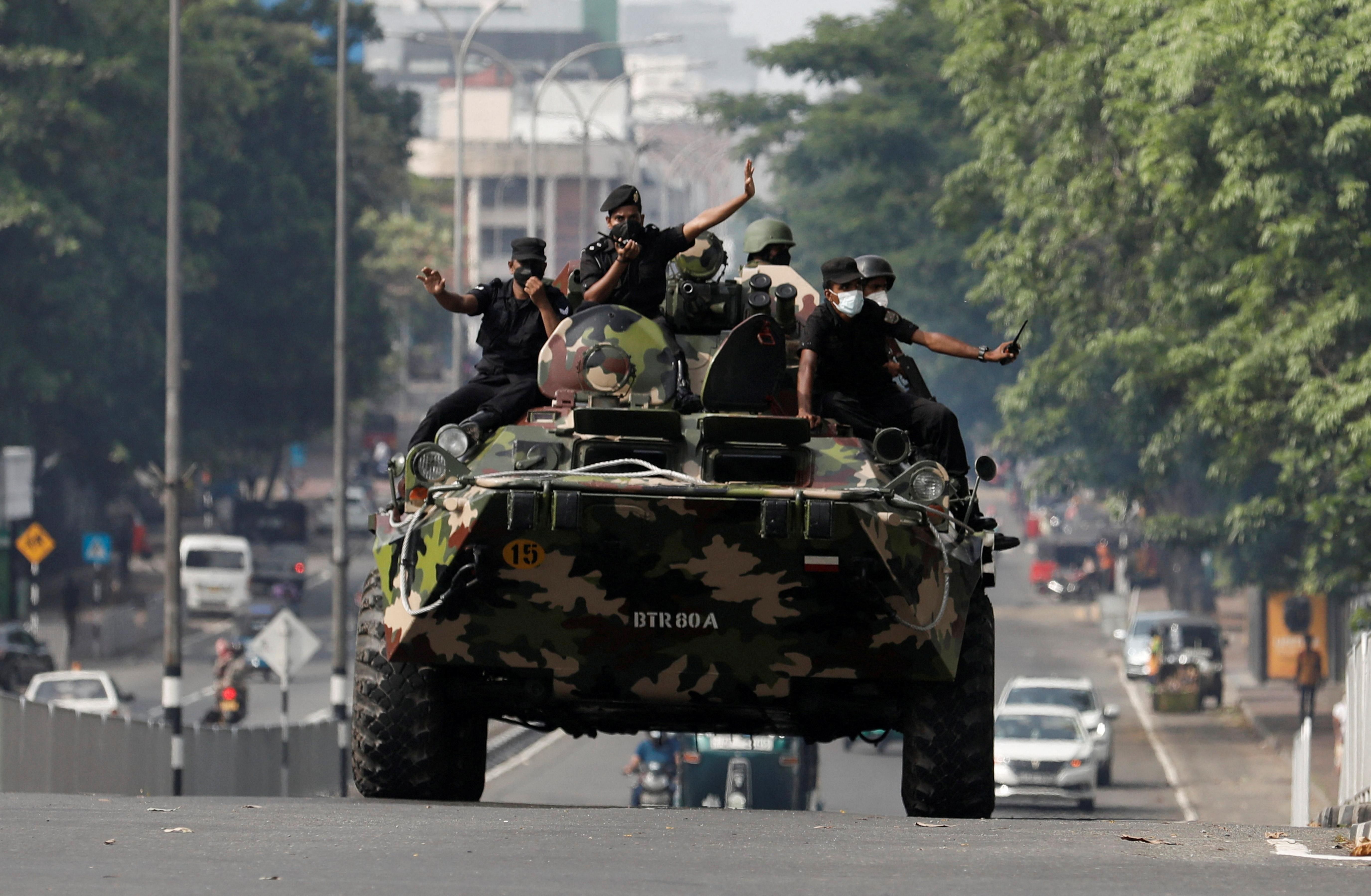For weeks, Sri Lanka has been in the grips of a deepening economic and political crisis, teetering on the brink of anarchy and chaos as a largely bankrupt state at risk of becoming a failed one. Massive protests driven by soaring fuel and food prices have forced the resignation of Prime Minister Mahinda Rajapaksa and upped the pressure on the international community to help alleviate the suffering of Sri Lankans. China and India, which have both vied for influence in the small island nation, are looking on nervously. We spoke to Eurasia Group’s Peter Mumford to get a sense of what might happen next and what the geopolitical stakes are.
Will the prime minister’s resignation help end the political crisis?
It will only modestly assuage protestors, who are unlikely to be happy unless his brother, President Gotabaya Rajapaksa, steps down as well. He is unlikely to do so, at least in the immediate future, though protesters may feel increasingly emboldened by his sacrifice of Mahinda (and other family members) to push for the president’s scalp too.
That said, Mahinda’s resignation could pave the way for a “national unity” government that includes ministers nominated by opposition parties. This could help calm tensions in the streets initially. Ultimately though, a new administration, whatever its makeup, will quickly become unpopular because it'll be unable to remedy the existential economic crisis and the woes of its citizens. That will probably require a new IMF debt restructuring program and an improvement in the global economic outlook.
How did Sri Lanka get to this point?
The economic crisis is a result of mismanagement by the Rajapaksa administration (and its predecessors) as well as Sri Lanka’s vulnerability to external shocks. The pandemic and Russia’s invasion of Ukraine have had a devastating impact. The Rajapaksas pursued populist economic policies — including unaffordable fuel and food subsidies and printing money to finance them — that spurred inflation. The president was heavily criticized for a disastrous “100% organic” policy that aimed to reduce the strain on foreign currency reserves by banning the import of chemical fertilizers. The policy resulted in slashed agricultural output at a time when food supplies were already running low and prices were soaring.
Meanwhile, foreign tourism — a key source of jobs, economic growth, and foreign currency — fell after the 2019 Easter bombings and then collapsed during the pandemic. The spike in international commodity prices, which has been exacerbated by Russia’s invasion of Ukraine, has piled further economic pressure on Sri Lanka. The country relies heavily on imports of food, fuel, and other essential goods to feed the people and keep the lights on.
What role did China play?
Sri Lanka’s crisis is often blamed in part on China’s so-called “debt-trap diplomacy.” While it is true that Colombo has borrowed large sums of money from Beijing for infrastructure projects, China accounts for only about 10%-15% of Sri Lanka’s total external borrowings (although the share has risen in recent years). Private international investors hold just over half of it.
Beijing has supported Sri Lanka in the current crisis by providing a large currency swap agreement to temporarily bolster Colombo’s foreign exchange reserves. Still, it's just another loan. China has also allowed Sri Lanka to roll over some bilateral debt repayments but has yet to offer any debt forgiveness.
What would Sri Lanka need to do to get IMF debt relief?
The IMF has already started negotiations with Sri Lanka on a new program that will require a broad debt restructuring, economic reforms, and spending cuts. But those talks could take months to conclude, and the IMF now says that Sri Lanka does not meet the criteria for a Rapid Financing Instrument, which allows countries to get cash fast to meet urgent payments without a more comprehensive program in place.
Gotabaya has assembled a team of expert advisers to help, though discussions with creditors could take some time unless Colombo unilaterally announces “haircuts” — that is, a reduction in the amount it is willing to repay. The IMF will also need to be convinced that the government is serious about implementing the broad reforms needed to get the country’s finances back on a more sustainable path, including spending cuts and tax hikes. The central bank dramatically raised interest rates recently, signaling its willingness to take tough measures to tackle inflation and rebuild currency reserves.
What about India? Can Delhi do more beyond giving Sri Lanka food and cash lifelines?
India has provided Sri Lanka with credit lines for the purchase of much-needed fuel and other essential goods, even as India faces its own shortages and inflationary pressure. It has also offered a small currency swap agreement and indicated a willingness to provide debt forgiveness as part of an IMF package. As an important stakeholder at the IMF, India is also lobbying the fund for more and faster multilateral support for Sri Lanka.
